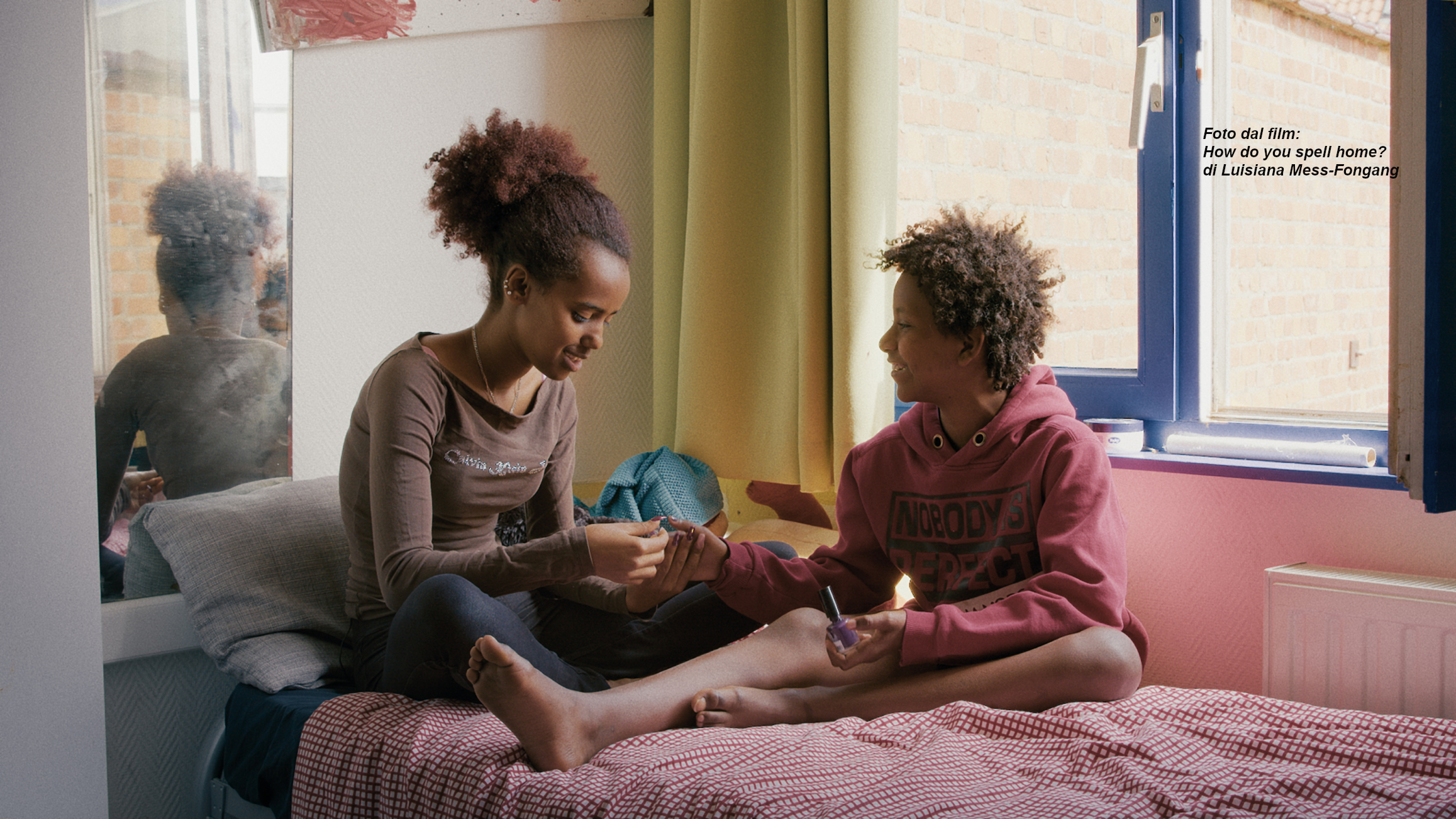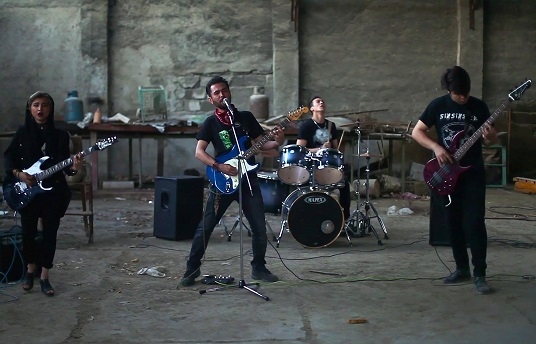directed by Hasan Noori, Iran/Afghanistan/Qatar 2019, 72′
They’ve been making music together for years, despite the disapproval of the people around them. Akbar, Soori, Mohammed and Hakim are the only young immigrants in Iran who have formed a rock band. All they miss now is an opportunity to play live. The Forbidden Strings shows the musical foursome struggling to get themselves heard, and follows them in the run-up to a historic day.
As the title suggests, they face quite a few challenges along the way. All four band members are children of Afghan parents who fled to Iran, and that means they face dangers if they return to their homeland. Their families are worried about them. The rockers promise to stay out of trouble when they go to Kabul for their show, but they realize what they’re up against soon after arriving. Clearly, Afghanistan is still a very dangerous place.
The moments of joy are infectious, but sobering reality is always lurking. An honest film about four young people who have to break with tradition to express themselves.
Watch the trailer
Documentary available online from October 11 at 9pm to October 13 at midnight at festivalscope.com/
Available for free for up to 400 people
Live screening and debate: Tuesday 13th October, Cinema Massimo 1, 9 pm
with Alidad Shiri (journalist) and Samir Garshasbi (editor of Mediorientarsi and activist)
“Afghanistan, Iran and Italy. Migrations, between discrimination and inclusion”
Alidad Shiri was a child in the city of Ghazni in Afghanistan, where he saw the joy of family relationships and friendships, but also the horror of a terrible war that destroyed entire families. It was normal to see the corpses of people abandoned in the streets, the trails of bullets passing over the houses, and to hear the noises of explosions. During Alidad’s childhood, women could not work, and girls were not allowed to attend school. After 40 years of war the situation has improved – think of the greater freedom that women have, regarding work and education, as well as information and political participation. However, the return of the Taliban is upon us. Men continue to flee, taking with them women and children too, because there is no prospect of a stable future. Thus, they entrust their fate to the traffickers. First, they become asylum seekers in Pakistan, and then they go to Iran, where they are not recognized any rights. In this regard, Semir Garshasbi recalls how Iran is characterized by the regular violation of human rights and religious fundamentalism; Muslim brotherhood is invoked and exploited to create internal cohesion but not to include the many foreigners who live on the margins of the country. Afghan migrants can follow three paths: Europe, Australia, and North America. The journey lasts for years, often suspended between life and death, because they suffer from hunger, thirst, psychological, physical and sexual violence, torture and prison. Many get lost along the way, while those you manage to reach their destination have to face the difficulty to be recognised as refugees. Despite the strict migration policies of the past few years, in Italy the inclusion of asylum seekers works mainly thanks to the third sector. However, refugees personally experience racism, which does not depend on political ideologies, and which leads a part of the population to see new citizens as people to be avoided. Someone sees them as people in need who have stories to tell, but they almost never see them as participating members of society with ideas and projects. This recognition is fundamental to achieve a truly inclusive society, where actions speak louder than words.




